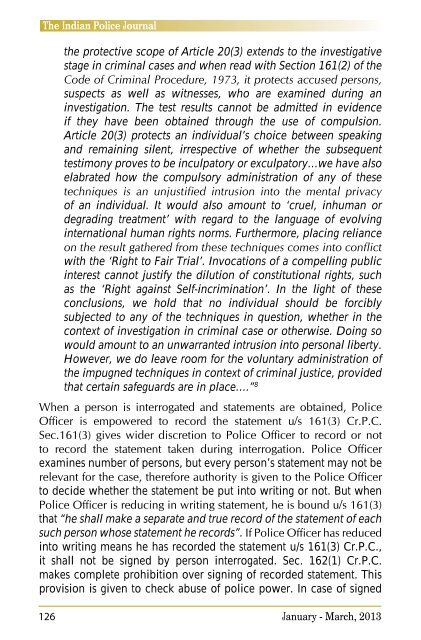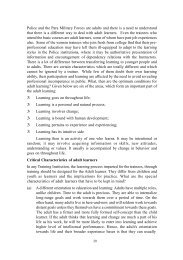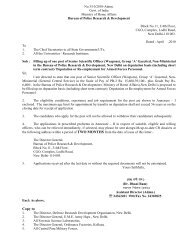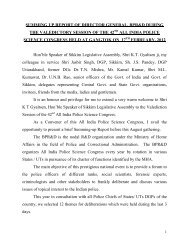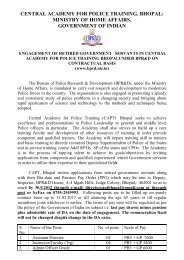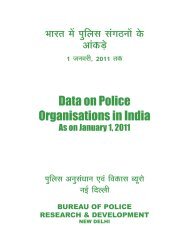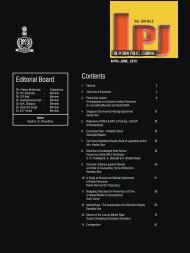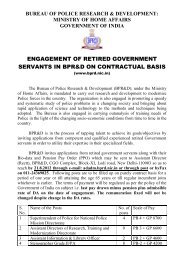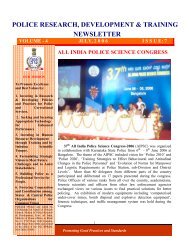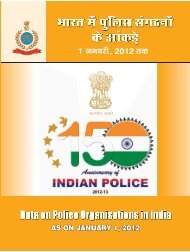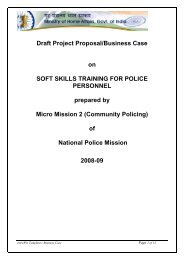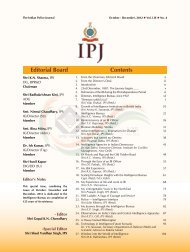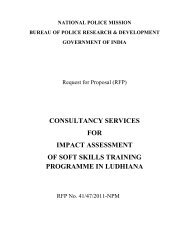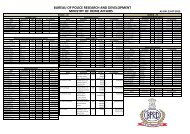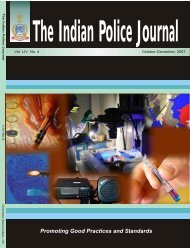by Police - Bureau of Police Research and Development
by Police - Bureau of Police Research and Development
by Police - Bureau of Police Research and Development
You also want an ePaper? Increase the reach of your titles
YUMPU automatically turns print PDFs into web optimized ePapers that Google loves.
The Indian <strong>Police</strong> Journalthe protective scope <strong>of</strong> Article 20(3) extends to the investigativestage in criminal cases <strong>and</strong> when read with Section 161(2) <strong>of</strong> thesuspects as well as witnesses, who are examined during aninvestigation. The test results cannot be admitted in evidenceif they have been obtained through the use <strong>of</strong> compulsion.Article 20(3) protects an individual’s choice between speaking<strong>and</strong> remaining silent, irrespective <strong>of</strong> whether the subsequenttestimony proves to be inculpatory or exculpatory…we have alsoelabrated how the compulsory administration <strong>of</strong> any <strong>of</strong> these <strong>of</strong> an individual. It would also amount to ‘cruel, inhuman ordegrading treatment’ with regard to the language <strong>of</strong> evolvinginternational human rights norms. Furthermore, placing reliancewith the ‘Right to Fair Trial’. Invocations <strong>of</strong> a compelling publicinterest cannot justify the dilution <strong>of</strong> constitutional rights, suchas the ‘Right against Self-incrimination’. In the light <strong>of</strong> theseconclusions, we hold that no individual should be forciblysubjected to any <strong>of</strong> the techniques in question, whether in thecontext <strong>of</strong> investigation in criminal case or otherwise. Doing sowould amount to an unwarranted intrusion into personal liberty.However, we do leave room for the voluntary administration <strong>of</strong>the impugned techniques in context <strong>of</strong> criminal justice, providedthat certain safeguards are in place….” 8 examines number <strong>of</strong> persons, but every person’s statement may not beto decide whether the statement be put into writing or not. But whenthat “he shall make a separate <strong>and</strong> true record <strong>of</strong> the statement <strong>of</strong> eachsuch person whose statement he records”. into writing means he has recorded the statement u/s 161(3) Cr.P.C.,it shall not be signed <strong>by</strong> person interrogated. Sec. 162(1) Cr.P.C.makes complete prohibition over signing <strong>of</strong> recorded statement. Thisprovision is given to check abuse <strong>of</strong> police power. In case <strong>of</strong> signed126 January - March, 2013


